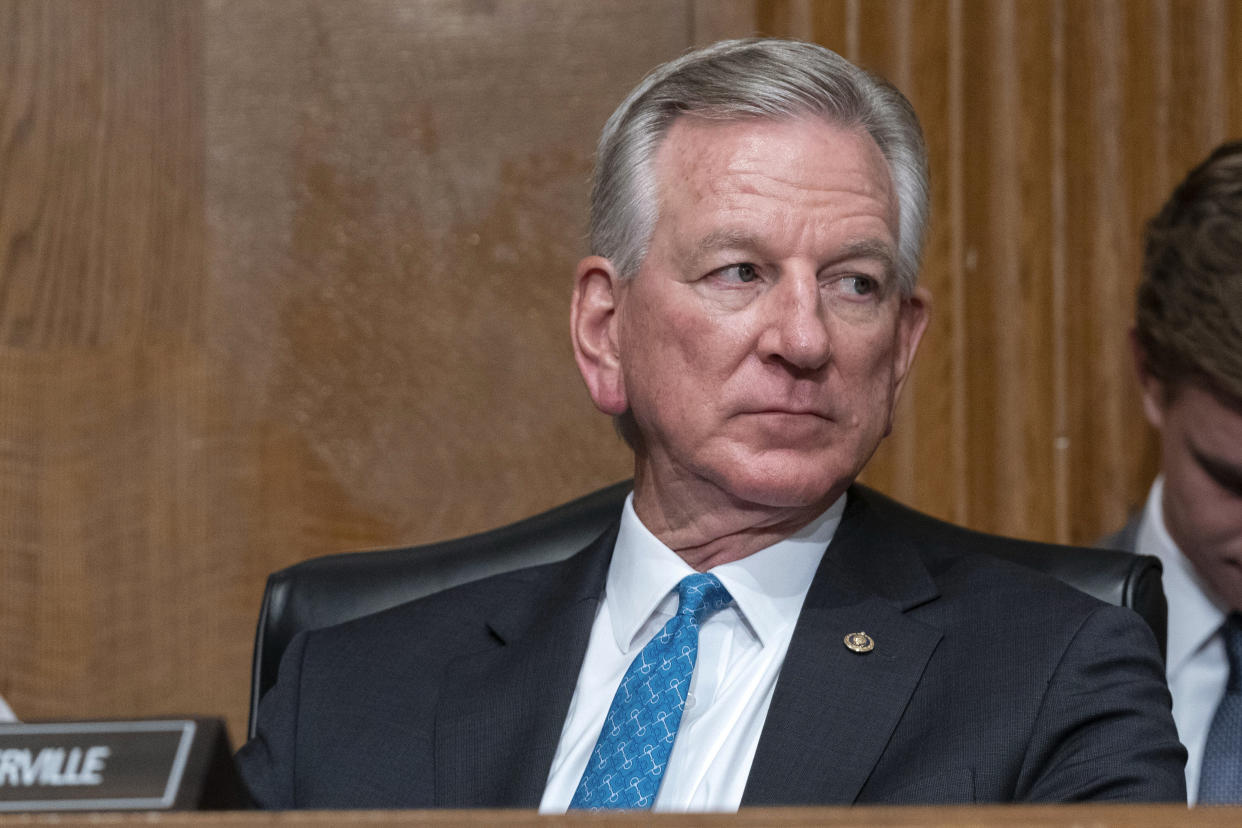Republicans tout rural broadband — even if they voted against it
Most Republicans voted against a 2021 bill that is now providing money to get high-speed internet to rural parts of America. But this week, a handful of GOP lawmakers were nevertheless unable to resist touting the money that is headed to their state.
It’s a pattern that has repeated itself with some regularity in recent years on issues from COVID relief to infrastructure. The heightened back and forth this week is perhaps most telling about the importance of the underlying issue of rural broadband.
On Monday, the White House laid out new details of how over $40 billion for rural connectivity from the Bipartisan Infrastructure Law will be spent in the years ahead. Crucially, it also released a state-by-state breakdown of where the money is headed.
Two reactions to the news attracted plenty of attention this week. Sens. Tommy Tuberville (R-Ala.) and John Cornyn (R-Texas) both voted no on the infrastructure bill. Yet, Tuberville tweeted this week that the $1.4 billion headed to his state represents “crucial funds to boost ongoing broadband efforts.” Likewise, Cornyn made sure to note the $3.3 billion headed to his state.
Both Senators have been questioned about the seeming disconnect and both have reaffirmed that they’d vote no again but also that they support the money for rural broadband. Cornyn tweeted that the overall bill created problems and "you don’t solve one problem by creating two more."
Steven Stafford, Tuberville's communication director, noted to Yahoo Finance that the senator has been a long-time advocate for rural broadband and opposed the 2021 bill because of other provisions while still pushing for rural broadband.
Either way, now that the bill has been enshrined into law, Tuberville "is proud to advocate for this funding to go to Alabama," Stafford added.
$90 billion for broadband
Overall, the Biden administration is set to spend about $90 billion for broadband in the years ahead, with money coming from both the American Rescue Plan (which garnered zero GOP votes in support) and the Bipartisan Infrastructure Law (which the vast majority of Republicans nevertheless voted against).
But it's intended to tackle a problem that is felt all across America. The White House estimates that there are somewhere on the order of 8.5 million homes and businesses that simply aren’t able to connect to high-speed internet. Millions more face subpar connections.

The GOP largely opposed the infrastructure bill but still expressed support for many of the rural broadband provisions throughout the 2021 debate. That support — which clearly has continued to this day — is evidence of how the problem is most acute in America's most rural (and Republican-leaning) areas.
The pattern of voting no on the bill but noting the broadband results has also come this week from GOP lawmakers from Washington state to Ohio to Florida.
The 2021 infrastructure law secured funding for a variety of initiatives from roads to ports to lead pipes to airport terminals and more. Broadband is of course far from the only issue in the bill that finds GOP support. Just this week, Rep. Nancy Mace (R-S.C.) reportedly participated in a press conference around funding for clean buses in her state after she voted no on the bill.
‘It’s bringing along converts’
The GOP statements have naturally led to a flurry of gleeful commentary from Democrats pointing out what they call hypocrisy.
President Biden himself quote tweeted Tuberville’s message and brought it up during a speech in Chicago Wednesday. "It’s bringing along converts," the president said of his "Bidenomics" agenda. He noted Tuberville’s message in a mocking tone and claimed he’d gone from being opposed to "hailing its passage" even as Tuberville remains opposed to the overall bill.
"The President and his allies have twisted Coach’s words beyond recognition," said Stafford. Before he got into politics, Tuberville was the head football coach at Auburn University.
See you at the groundbreaking. https://t.co/1kJZ2h3JZW
— President Biden (@POTUS) June 28, 2023
Many Republicans have criticized the law as being skewed towards urban areas, but the broadband money clearly stands to most help America's rural areas.
The states that received the most funding in this week’s announcement are those with the most unserved citizens who pretty much exclusively live outside of large cities. In addition, a senior administration official recently discussed how an allotment of 10% of the money is for the most rural areas. They noted that "there are some locations in our country that are so remote" that a special set-aside is needed.
Meanwhile, as he works to improve his standing on the economy and fine-tune his re-election message, President Biden and other Democrats are clearly happy to have this political gamesmanship front and center.
During his remarks Wednesday, Biden said he hopes that successes in his economic agenda could help lessen the division in the country, noting it’s "awful hard to demagogue something when it’s working."
But he couldn’t resist quickly adding that, in his view, Republicans nevertheless "do it all the time."
Ben Werschkul is a Washington correspondent for Yahoo Finance.
Click here for politics news related to business and money
Read the latest financial and business news from Yahoo Finance
